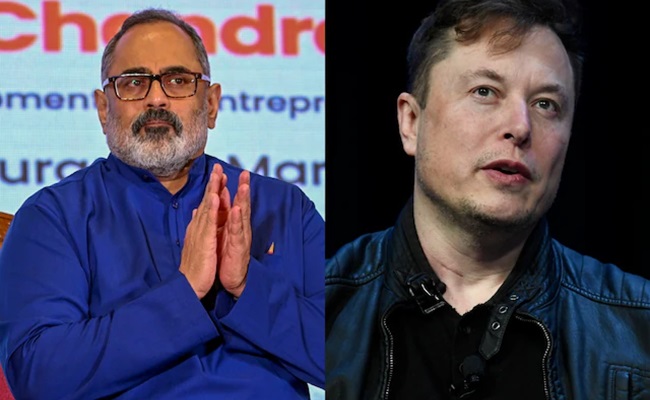
The debate on whether electronic voting machines (EVMs) can be hacked further heated up between Elon Musk and Rajeev Chandrasekhar on X social media platform on Sunday, with the former Union Minister saying that we both can finally "agree to disagree".
When Chandrasekhar told the tech billionaire that Indian EVMs are custom-designed, secure and isolated from any network or media, the Tesla CEO replied: "Anything can be hacked".
Chandrasekhar replied, saying anything is possible with quantum compute and "I can decrypt any level of encryption".
"With lab level tech and plenty of resources, I can hack any digital hardware/system including flight controls of a glass cockpit of a jet etc. But that's a different type of a conversation from EVMs being secure and reliable vis a vis paper voting. And we can agree to disagree," the former minister argued.
Earlier in the day, Chandrasekhar debunked Musk’s take on eliminating EVMs from voting as a "huge sweeping generalisation statement".
"Electronic voting machines can be architected and built right as India has done. We would be happy to run a tutorial, Elon," Chandrasekhar told the tech billionaire. Musk had alleged that EVMs should be eliminated as the "risk of being hacked by humans or AI, while small, is still too high".
“This is a huge sweeping generalisation statement that implies no one can build secure digital hardware. Wrong,” replied the former minister.
According to Chandrasekhar, Musk’s view may apply to the US and other places where they use regular computing platforms to build “Internet-connected Voting machines.”
Musk had reacted to Puerto Rico’s primary elections which allegedly experienced voting irregularities.
Chandrasekhar further rejected Musk’s statement, saying that Indian EVMs are custom-designed, secure and isolated from any network or media.
“No connectivity, no bluetooth, wifi, Internet; there is no way in. Factory-programmed controllers that cannot be reprogrammed", informed the former minister.














